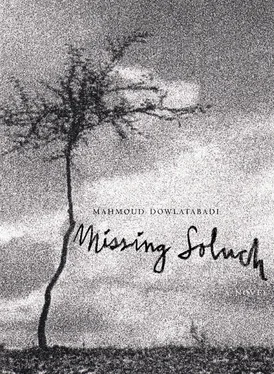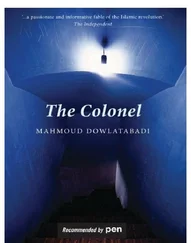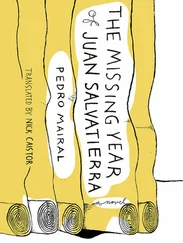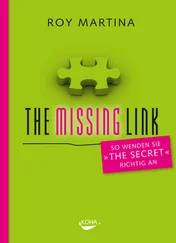Abbas reached for the water flask, put its mouth to his, and swallowed. The water wet his mouth and throat. He returned the flask to his sack, closed the bag, and lay on his back. Face-to-face with the sun, he brought his eyelids together, closing them. This was what was good about herding camels. You could set the herd loose in a field and then just relax. You could sleep if you were sleepy — it didn’t matter. Before the evening prayers, all you had to do was get up once in a while and bring back any camels that had strayed too far away. The camels busied themselves, and the camel herder was usually free to do as he wished. If he was ambitious, the herder could go out alongside the camels and gather a bushel of the scrub to bring home with himself at dusk. But those who shared Abbas’ disposition would just while the day away until sundown, gathering the herd from the various corners of the field while there was still some sun, to bring them back to Zaminej. The evenings were the time for the young men to enjoy; sitting by a wall in the moonlight or gathering in the back room of Sanam’s house — that was what Abbas lived for.
But where were the other guys now? All of the other youth, where had they gone?
Between his closing eyelids, Abbas saw his peers leaving … They were already gone. It was so quick. He shut his eyes. He had to forget them. Abbas didn’t want to be the kind of man to let useless sorrow into his heart. Just like a young wolf that cannot afford to be swayed by regret or grief, he had to stay focused on eating his next meal and finding the next prey to ambush. No time for sentiments: let sorrow raise its head in some other place, far away.
This was all well and good, but something still bothered Abbas. All this coming and going would no doubt bring changes to the village. Some things were almost certainly going to be rearranged. But what would they be? He couldn’t foresee them. He couldn’t pass by the old ruins of the salt-water mill with his eyes shut so as to forget Shahmir’s sad end. The mill that was now, at best, a haunt for spirits was not so long ago a warm and lively place. The people who brought their barley and wheat to be ground there would gather around its oven in the winter and tell stories and gossip. Abbas had gone there many times with Soluch to bring grain to be ground. Abbas rode on their donkey — this was before it died — holding a sack of barley between his legs while holding onto the bridle. The early mornings brought Soluch to the mill; for this reason, Abbas’ memories of the path were usually of sleeping on the way, or of being on the smooth stone ground beside the mill’s oven.
But now, the motorized mill of Dehbid could grind all the wheat and barley that was brought to it from all over, making more flour from the grains than one could know what to do with. And old Shahmir, whose eyes could no longer see, was left only with the old stories that filled his mind. He was left to tap his walking stick as he wandered, recollecting all that he’d heard and seen in his life, relating it to others in the weaving of his stories.
Could it be that the youth of Zaminej, Abbas’ contemporaries, would never again return to the village?
Abbas was suddenly shaken. What if they didn’t return? Some might never come back, since it had been said that after the group of partners set up their motorized water pump, there would be even less water in the cisterns. People were complaining that the pump would suck out the underground water of the surrounding areas. Abbas couldn’t get his mind around it all — all of the changes that were beginning to occur. All the talk of pistachio farming. Pistachios. Even the name was unfamiliar. Abbas had never even eaten a pistachio. He’d heard it was something similar to the meat of an apricot pit. He had seen apricots, out in the foothills, while he was traveling with his uncle. But in Zaminej, all that came out of the ground was barley and wheat and cotton. There were fruits also, such as honeydew or watermelons, and in some places people planted tomatoes.
Abbas had heard that the water pump would reach down into the heart of the earth and bring up the water. Mirza Hassan and Salar had hired a few people to dig a well. When he heard this, Abbas thought of his father — himself a well digger. If he were still around, he could have become the overseer of the digging of the water pump’s well. They’d not need to have hired well diggers from Dehbid. The rumors were that a few of the other landowners had gotten their courage up and had also invested in the water pump, so they’d be able to make use of it for an hour or two at a time. But most villagers had not only refused to invest in the pump, but had begun to give voice to their dissatisfaction about it as well. Their claim was that the pump would dry out the cisterns, and that if this happened all the other village lands would become dry and worthless. They’d say, “What it means is that once the pump is set up, we’ll have to pack up our things and leave the village!”
Ignoring their concerns, Salar Abdullah and his partners expected the pump to arrive from the town any day now. Mirza Hassan himself had spread the word that he’d gone to the capitol recently and settled the business of the pump and that nothing would stand in its way. Today, the tractor had gone out to Mirza Hassan and Agha Malik’s lands to plough the earth there. The lands that had previously been readied for dry farming and ploughed in a way to collect rainwater no doubt would be ploughed in a different way from today on.
Abbas thought, “That clever bastard Abrau really knew what he was doing when he jumped onto the tractor’s running board! One day, I might find that he’s even forgotten his own brother’s name!”
Deep in his heart, Abbas didn’t like Abrau. He felt like an abandoned fellow traveler, as if Abrau had gone and just left him behind. A dull and dust-covered grudge pierced at Abbas’ heart. Just thinking about it made him grind his teeth.
“That son of a bitch! Like a clever dog nuzzling at his owner’s stirrups, he’s really got himself a nice little situation. But we’ll see what happens!”
The lack of sleep from the previous night began to affect Abbas. Under the hot sun, his body began to go numb and his eyelids settled into the soft sands of sleep. The quiet of the fields and the wild lands settled like a weight upon his eyelids. Sleep overtook him. Then, all of a sudden, his body covered in sweat, he lifted his head from his sack and opened his eyes wide — the cry of one of the camels had filled the air. The dark camel had once again attacked the old mare. He had brought her to her knees and was sinking his teeth into her throat just beneath her jaw. The cries of the old mare took different shades, as if she were crying an old woman’s lamentation. She waved her head to and fro, and then began to scrape and hit her head against the earth. She cried out in pain, but the dark male would not let go of her throat, as if he was set on her destruction. Abbas had to do something. If the old mare were injured, it would be his responsibility. Of course, even if Abbas couldn’t be expected to compensate the Sardar for a lost camel, he would never find work again. They send a man out with the camels for a reason; and they expect you to be just that, a man!
Abbas grabbed his stick and leapt up. He reached the camels quickly. Their necks were bent into each other; the old mare was beginning to lose her breath. Abbas began beating the dark male on the neck, raining blows on him. He grasped the stick with both hands, unconcerned with where he was hitting him, on his head or nose or neck. He beat him, and with each blow his anger rose. He beat him and swore with each blow, cursing the camel and its owner, cursing him and the earth and the sky above.
Читать дальше












